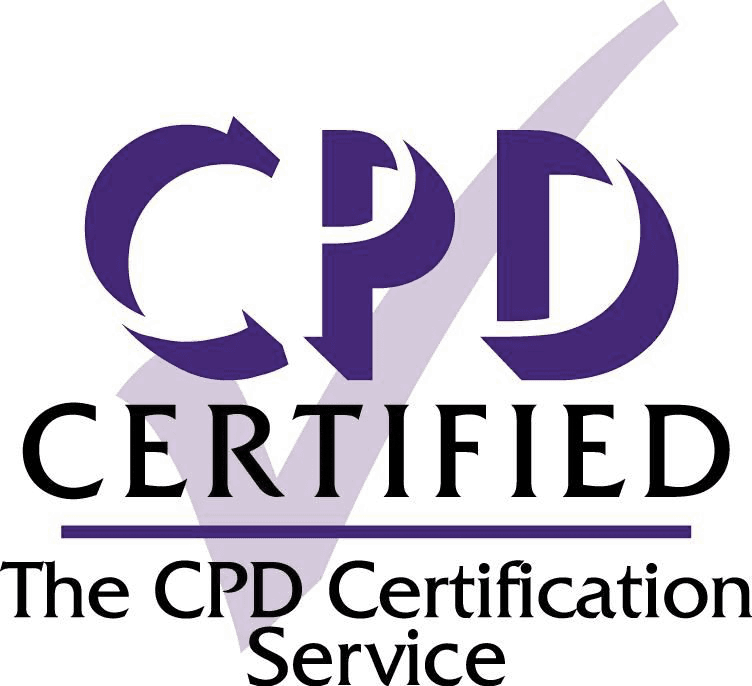
Oxford AI-Driven Business Transformation Executive Programme
Online programme
Strategically deploy artificial intelligence (AI) systems that generate measurable ROI within your organisation. Earn an executive certificate with one cohort learning experience that bundles three Saïd Business School, University of Oxford flagship programmes: AI, Strategic Innovation, and Executive Strategy.
6 months including 1 week orientation and 2 week-long breaks.
7–10 hours hours of cohort-based learning per week, entirely online.
Email: oxfordonline@getsmarter.com
Call: +44 1223 790 601
About this programme
The Oxford AI-Driven Business Transformation Executive Programme empowers today’s leaders to navigate the critical intersection of AI, innovation and strategy. You will develop the skills to capitalise on emerging AI technologies and navigate the complex ethical landscape of AI adoption. Through the programme’s final capstone project, you will craft a comprehensive framework that positions your organisation to gain a competitive advantage through strategic deployment of AI technology.

This Oxford AI-Driven Business Transformation Executive Programme is certified by the United Kingdom CPD Certification Service, and may be applicable to individuals who are members of, or are associated with, UK-based professional bodies. The programme has an estimated 190 hours of learning.
Note: should you wish to claim CPD activity, the onus is on you. Oxford Saïd and GetSmarter accept no responsibility, and cannot be held responsible, for the claiming or validation of hours or points.
What this programme covers
This programme gives you the strategic acumen to capitalise on disruptive AI technologies in ways that drive revenue growth and demonstrate ROI.
In section one, you will gain a sound understanding of AI: its history, functionality, capabilities and limitations. You will explore empirical research and real-life case studies and identify potential use cases for AI applications in your organisation.
In section two, you will learn practical skills for building organisational systems and structures. You will also learn strategies for supporting a culture that facilitates innovation as a sustainable and routine practice.
Finally, in section three, you will gain practical guidance on improving business strategies, drawing on Oxford Saïd faculty research, which informs the leadership of global organisations. You will also create and leverage a personalised strategy framework focusing on the four Ps of strategy: purposes, players, partnerships and processes.
A powerful collaboration
Saïd Business School, University of Oxford is collaborating with digital education provider GetSmarter to create a new class of learning experience – one that is immersive, collaborative and designed for busy working professionals.
About Saïd Business School, University of Oxford
Saïd Business School blends the best of new and old. Deeply embedded in an 800-year-old world-class university, Oxford Saïd strives to educate people for successful business careers. As a community, Oxford Saïd seeks to use business acumen and global networks to address long-horizon phenomena like demographic change, new technologies, and natural resource scarcity. Oxford Saïd is committed to delivering cutting-edge education and ground-breaking research that transforms individuals, organisations, business practice and society.

Join the Oxford Executive Education Elumni LinkedIn Group*
This is an official Saïd Business School, University of Oxford, alumni group for all open, online, and executive programmes. You’ll be able to network with past participants of other online and on-campus Oxford Saïd programmes, and gain first access to School news.
*Access to this group will only be granted following the participant’s successful completion and passing of the programme.

About GetSmarter
GetSmarter, part of edX, partners with the world's leading universities and institutions to select, design and deliver premium online short programmes with a data-driven focus on learning gain.
Technology meets academic rigour in GetSmarter’s people-mediated model, which enables lifelong learners across the globe to obtain industry-relevant skills that are certified by the world’s most reputable academic institutions.
As a participant of this programme, you will also gain unlimited access to edX’s Career Engagement Network at no extra cost. This platform will provide you with valuable career resources and events to support your professional journey. You can look forward to benefits including rich content, career templates, webinars, workshops, career fairs, networking events, panel discussions, and exclusive recruitment opportunities to connect you with potential employers.
Oxford artificial intelligence programme
Oxford strategic innovation programme
Oxford executive strategy programme
Meet and engage with your learning and peer networks as you navigate the Online Campus.
- Become familiar with your new virtual classroom
- Meet your success team and get to know your fellow classmates
Explore the history and potential of AI within the context of the digital ecosystem.
- Define AI
- Review the history and development of AI, and contextualise the technology in the emergent ecosystem
- Illustrate the nature of the different types of technologies and where AI fits in
- Analyse the trajectory and impact of different types of technologies in the digital ecosystem
Delve into the mechanics of the three main types of machine learning: supervised, reinforcement, and unsupervised learning.
- Discuss how to link types of data and machine learning approaches to solve existing problems
- Recognise the different machine learning approaches used for different types of data
- Identify the workflow of supervised, reinforcement, and unsupervised learning
- Analyse the impact of human decisions in the machine learning workflow
- Evaluate the benefits and limitations of machine learning approaches within different contexts
Understand what deep learning is and how it is powering the modern approach to AI.
- Identify the functionality of errors and weights in neural networks
- Determine the impact of backpropagation on neural networks
- Investigate different use cases of deep neural networks for making predictions and generating new content
- Assess the mechanics of machine learning algorithms, such as deep neural networks
Explore the concept of intelligence in machines and the impact of AI in the labour market.
- Describe the different forms of intelligence and how they relate to the completion of tasks
- Analyse the ways in which the workforce interacts with machines based on varied forms of intelligence
- Determine the scope of change that AI will enable in the conventional workforce
- Recognise areas of greatest potential for AI in your organisation or an organisation of your choice
Explore the hierarchy of ethical and legal considerations around AI.
- Categorise the three pitfalls of AI
- Investigate the regulatory considerations of using AI
- Debate the sources of algorithmic bias
- Develop ethical principles for your organisation or an organisation of your choice to instil for its AI applications and plan for preventing bias
Identify the potential business opportunities of AI in a specific context.
- Investigate the opportunities that AI offers an organisation across different sectors
- Formulate a business case for AI in your organisation or an organisation of your choice
- Debate the concept of the singularity within the current AI landscape
You’ll be welcomed to the programme and begin connecting with fellow participants, while exploring the navigation and tools of your Online Campus. Be alerted to key milestones in the learning path, and review how your results will be calculated and distributed.
You’ll be required to complete your participant profile, confirm your email address for the delivery of your digital certificate, and submit a digital copy of your passport/identity document.
Please note that module titles and their contents are subject to change during programme development.
Challenge popular cultural notions of innovation to understand the language and types of innovation, and the principles of building an innovation system.
- Explain why firms and other organisations innovate and why it is so difficult to innovate
- Identify concepts and more precise language for talking and thinking about innovation
- Distinguish between product and services, business model, and system-level innovation
- Investigate innovation as a specific, routine capacity and strategy of a business
- Analyse the nature, importance, and types of innovation in an organisation
Explore organisational design, division of labour, and the structural and cultural elements of a firm that allow innovation to be a routine function.
- Discuss how systems, people, organisation, and culture (SPOC) build capacity for innovation
- Review the aims and purposes of innovation strategies
- Determine how innovation value chains operate to create and capture value
- Compare innovation value chains in product and service contexts
- Contrast Stage-Gate, Agile, and open innovation systems
- Evaluate an organisation's success in building capacity for innovation
Explore models of innovation beyond standard notions of technological change and 'disruption', along with the interplay of technologies, market dynamics, and firm capabilities.
- Recognise the different sources of innovation
- Determine different drivers of innovation according to different innovation models
- Investigate the role of social and institutional factors in innovation
- Critique the notion of ‘disruption’ in describing innovation
Grapple with the ethics and governance considerations prompted by emerging technologies that integrate across digital, physical, and biological systems.
- Describe the Fourth Industrial Revolution in relation to emerging digital, biological, and physical technologies
- Determine the possibilities for responsible innovation
- Analyse specific ethical consequences and governance challenges posed by emerging technologies
- Reflect on the complexity of governance of emerging 4IR technologies
Consider the corporate landscape of innovation and how platforms organise market competition and, in turn, shape the nature of innovation.
- Describe the types of corporate innovation strategies and platforms
- Outline the roles of clusters and ecosystems in encouraging innovation
- Investigate the different types of external innovation strategies
- Analyse the differentiating characteristics of platforms driven by technologies
- Assess the challenges of corporate innovation strategies
Develop skills in leading for innovation, including implementation in context and the future of innovation, in light of what you have learnt on this programme.
- Describe the current trends and challenges of innovation
- Debate implementation challenges in innovation
- Practice using different frames in performing an implementation analysis
- Reflect on how trust is built in the information age
- Evaluate innovation strategies to identify what is needed for success
- Develop an innovation strategy as a response to challenges to innovation faced by businesses
You’ll be welcomed to the programme and begin connecting with fellow participants, while exploring the navigation and tools of your Online Campus. Be alerted to key milestones in the learning path, and review how your results will be calculated and distributed.
You’ll be required to complete your participant profile, confirm your email address for the delivery of your digital certificate, and submit a digital copy of your passport/identity document.
Please note that module titles and their contents are subject to change during programme development.
Explore your organisation's strategic potential using the Oxford view.
- Review the concepts of purposes, players, partnerships, and processes in strategy
- Demonstrate an appreciation of how the complexities of the contemporary world impact strategy
- Identify tools to understand the broader contemporary world of strategy
- Describe your organisation’s four Ps as part of a broader view of strategy
Consider the importance of broader environments and futures in formulating strategy.
- Identify the impact of the broader contextual environment on the transactional environment
- Review a socio-ecological approach to strategy
- Use the future to reframe the present with scenarios
- Investigate the tools available to anticipate change in your broader contextual and transactional environments
- Explore your organisation's broader environment
Gauge the plurality of purposes driving your organisational purpose strategy.
- Articulate the plurality of purposes in contemporary organisations
- Explore the nature of potentially competing purposes
- Reflect on ways to accommodate multiple competing purposes in your organisation
Engage and communicate with a breadth of players.
- Analyse the breadth of players relevant to strategy in your organisation
- Investigate the role of effective engagement and communication in managing strategic relationships
- Recommend ways to build relationships and legitimacy with players
- Write a strategy statement for your organisation, accommodating key players
Leverage the value of collaboration and competition in networked strategy.
- Articulate the interplay between collaboration and competition in a broader view of strategy
- Analyse the value of developing broader forms of partnerships to achieve strategic objectives
- Evaluate the role of collaboration and competition when designing a networked strategy
- Develop a networked strategy that co-creates value for those involved
Critically reflect on transforming your strategy process to be more inclusive and transparent.
- Investigate the benefits of opening strategy processes to a broader set of players
- Evaluate the extent to which inclusion and transparency are relevant for different issues and players
- Assess ways of harnessing increased participation and engagement in strategic processes
- Propose strategy processes for your organisation that facilitate broader inclusion and transparency
Leverage the broader Oxford view of strategy into your organisation's strategy practice.
- Analyse the role of strategic agility in the execution of strategy
- Reflect on the intersections of Purposes, Players, Partnerships, and Processes for strategy in your organisation
- Evaluate the important facets of a strategy playbook in the contemporary world
- Create an initial strategy playbook, using the Oxford view, for use in your organisation
Who should take this programme
This programme is designed for experienced executive-level business leaders who are responsible for or have influence in (AI) strategy and innovation within their business unit or organisation.
Technical-savvy professionals – including CIOs, IT managers, business analysts and others who are responsible for exploring, selecting and integrating new, innovative technologies – will benefit from the programme’s inclusive approach to AI, innovation and strategy.
The programme’s strong emphasis on networking allows participants to ideate, collaborate, learn and strategise together as they explore how to capitalise on AI within their respective organisations.
This programme is for you if you want to:
Drive adoption of AI technologies
Develop an understanding of AI functionality to successfully implement AI in your organisation.
Influence strategy and decision-making
Gain the strategic management skills to guide your organisation from a reactionary to a proactive mindset for AI transformation.
Advance your leadership career
Acquire the skills to lead in complex or siloed organisational structures and tackle the challenges of an uncertain, rapidly changing AI-driven economy.
About the certificate
Upon successful completion of the programme, you’ll receive an executive certificate from Saïd Business School, University of Oxford. Accelerate your career progression with your ability to confidently navigate AI-related change and build systems that can promote regular and sustainable innovation across your organisation.
Assessment is continuous and based on a series of practical assignments completed online. In order to be issued with your digital certificate, you’ll need to meet the requirements outlined in the programme handbook. The handbook will be made available to you as soon as you begin the programme.
Your digital certificate will be issued in your legal name and sent to you upon successful completion of the programme, as per the stipulated requirements.
Who you’ll learn from
These subject matter experts from Saïd Business School, University of Oxford guide the programme design and appear in a number of programme videos, along with a variety of industry professionals.
Your Programme Directors

Matthias Holweg
American Standard Companies Professor of Operations Management and Programme Director of the Oxford Artificial Intelligence Programme, Saïd Business School, University of Oxford

Marc Ventresca
Associate Professor of Strategic Management and Programme Director of the Oxford Strategic Innovation Programme, Saïd Business School, University of Oxford

Trudi Lang
Associate Professor in Management Practice and Programme Director of the Oxford Executive Strategy Programme, Saïd Business School, University of Oxford

Richard Whittington
Professor of Strategic Management and Programme Director of the Oxford Executive Strategy Programme, Saïd Business School, University of Oxford
Featured Guest Experts
Charlotte Deane
Professor of Structural Bioinformatics, University of Oxford
Luciano Floridi
Professor of Philosophy and Ethics of Information, University of Oxford
Michael Osborne
Dyson Associate Professor of Machine Learning, Oxford Martin School, University of Oxford
Michael Wooldridge
Professor of Computer Science, University of Oxford
Min Chen
Professor of Scientific Visualisation, University of Oxford
Natalia Efremova
Lecturer in Digital Economy, Queen Mary University, London; Chief Technology Officer, Deep Planet
Paul Newman
BP Professor in Information Engineering, University of Oxford Founder and CTO, Oxbotica
Viktor Mayer-Schöenberger
Professor of Internet Governance and Regulation, University of Oxford
Catalina Cernica
Head of Innovation UK, LEO Innovation Lab
Joyeeta Das
CEO, GYANA
Maria Zubeldia
Innovation Coach; Head of The Entrepreneurship Centre, Saïd Business School, University of Oxford
Michele Scataglini
Co-Founder, Insta Associates
Mina Bekheet
CEO and Founder, Panacea Innovation
Pinar Ozcan
Professor of Entrepreneurship and Innovation, Saïd Business School, University of Oxford
Sean Peters
CEO, DryGro
Victor Seidel
Associate Scholar, Saïd Business School, University of Oxford
CeCe Morken
President and Chief Operating Officer, Headspace
Colette Marshall
Director of Operations, Diabetes UK
Eero Vaara
Professor in Organisations and Impact, Saïd Business School, University of Oxford
Liam Cleaver
Vice President, IBM
Marya Besharov
Professor of Organisations and Impact, Saïd Business School, University of Oxford
Megan Cooper
Managing Director, Head of Digital Strategy, Barclays
Natasha Garcha
Director, Innovative Finance, Impact Investment Exchange (IIX)
Rafael Ramirez
Professor of Practice, Saïd Business School, University of Oxford
How you’ll learn
Every programme is broken down into manageable, weekly modules designed to accelerate your learning process through diverse activities:
- Work through your downloadable and online instructional material
- Interact with your peers and learning facilitators through weekly class-wide forums and reviewed small group discussions
- Enjoy a wide range of interactive content, including video lectures, infographics, live polls and more
- Investigate rich, real-world case studies
- Apply what you learn each week to quizzes and ongoing project submissions
Your success team
GetSmarter, with whom Oxford Saïd is collaborating to deliver this online programme, provides a personalised approach to online education that ensures you’re supported throughout your learning journey.

Head Tutor
A subject expert who’ll guide you through content-related challenges.

Success Advisor
Your one-on-one support, available during university hours (8am–5pm GMT) to resolve technical and administrative challenges.

Global success team
Available 24/7 to solve your tech-related and administrative queries and concerns.
Technical requirements
Basic requirements
In order to complete this programme, you’ll need a PDF Reader. You may also need to view Microsoft PowerPoint presentations, as well as read and create documents in Microsoft Word or Excel.
Additional requirements
Some programmes may require certain software and resources, which will be communicated to you upon registration and/or at the start of the programme. Please note that Google, Vimeo and YouTube may be used in our programme delivery.